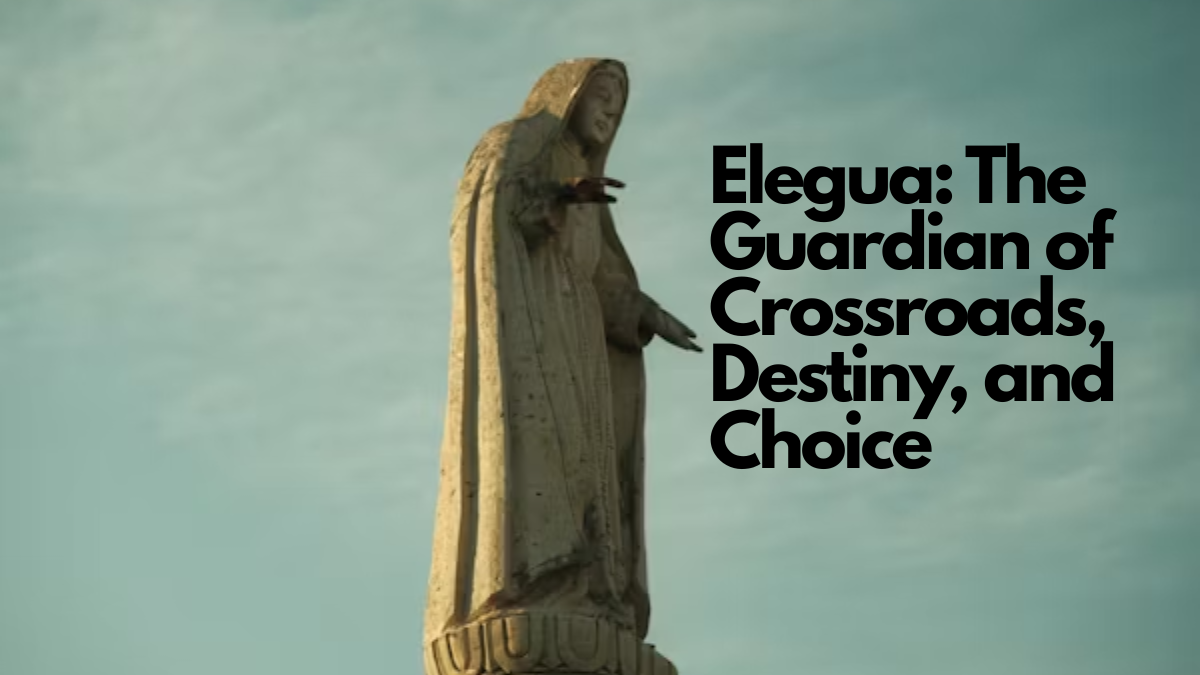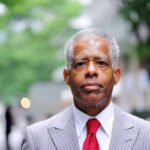Elegua is one of the most vital deities in the Yoruba spiritual tradition, often described as the guardian of crossroads and the opener of paths. For anyone exploring African diaspora religions or the cosmology of Yoruba belief, understanding Elegua is essential. Within the first steps of any ritual, prayer, or ceremony, practitioners turn to him first. He is the messenger between human beings and the divine, and without his permission, no communication with the other Orishas—the pantheon of Yoruba deities—can occur.
This means that Elegua is not simply a mythic figure but a spiritual principle: he represents decision, movement, and the eternal tension between chance and choice. If you are searching for what Elegua’s truly means, the short answer is this: Elegua is the gatekeeper of destiny, the spiritual force who opens and closes every road in life.
The Origins of Elegua
Elegua’s origins trace back to the Yoruba people of West Africa, particularly in present-day Nigeria and Benin. When enslaved Africans were brought to the Americas, they carried their beliefs with them, and over generations, those beliefs merged with local customs, Catholic saint veneration, and other traditions. This is why you will find Elegua’ ‘snot only in Yoruba religion but also in Santería (Cuba), Candomblé (Brazil), and other Afro-Caribbean practices.
In Yoruba cosmology, Elegua’s is classified as an Orisha—a divine entity embodying aspects of nature and human existence. His domain is unique: he governs all thresholds. Crossroads, doorways, beginnings, and endings belong to him. Linguistically, his name is sometimes spelled Eleggua, Eshu-Elegbara, or simply Eshu. Scholars debate the exact etymology, but most agree that the concept ties to the Yoruba understanding of “ashe,” or sacred power.
A proverb often cited in Yoruba communities says:
“Without Elegua’s, nothing can be done.”
This phrase captures his foundational place: every prayer starts with him, because he holds the keys to communication itself.
Characteristics of Elegua
Elegua’s is not a one-dimensional figure. His complexity makes him one of the most fascinating Orishas to study.
Dual Nature
Elegua’s is both mischievous and protective. He is seen as a trickster, capable of teaching through confusion, yet also as a benevolent guardian. His role resembles figures like Hermes in Greek mythology or Mercury in Roman mythology, who were also messengers and tricksters.
Associated Symbols
- Colors: Red and black, sometimes white and black
- Numbers: Three and twenty-one
- Sacred Objects: Keys, stones, cowrie shells
- Places of Worship: Roadsides, thresholds, crossroads
Offerings
Practitioners often leave small offerings to Elegua’s, ranging from candies and cigars to rum and roasted corn. The offering reflects his playful and paradoxical spirit: he enjoys sweet things but also appreciates the bitter and strong.
Elegua in the Diaspora
When Yoruba traditions were carried into the Americas through the transatlantic slave trade, they adapted to new conditions. Catholic imagery was often used as a mask to preserve African spirituality under colonial oppression. Elegua’s was sometimes syncretized with Catholic saints, such as Saint Anthony of Padua or the Holy Child of Atocha.
This blending ensured the survival of Yoruba cosmology, even in environments where African religion was forbidden. Over time, the figure of Elegua evolved into a symbol not only of communication with the divine but also of cultural resilience and continuity.
The Spiritual Role of Elegua
Elegua’s most important role is as a mediator. He connects the visible world with the invisible one. In every ritual, he must be acknowledged first, because he is the one who “opens the road.”
Why This Matters
From a practical standpoint, ignoring Elegua in ritual means the other Orishas will not listen. Symbolically, this also represents the human reality: choices and opportunities cannot manifest unless we respect the forces that govern them.
A Yoruba elder once summarized this role with striking clarity:
“Elegua is the crossroad itself. Every choice you make, he is already there.”
Table: Key Aspects of Elegua
| Attribute | Description |
|---|---|
| Domain | Crossroads, communication, beginnings, destiny |
| Colors | Red and black |
| Sacred Number | 3 and 21 |
| Offerings | Candy, rum, cigars, roasted corn |
| Syncretized Saint | Saint Anthony of Padua, Holy Child of Atocha |
| Role in Ritual | First Orisha to be invoked; gatekeeper of divine communication |
| Personality Traits | Playful, mischievous, protective, wise |
Modern Interpretations of Elegua
Today, the figure of Elegua has transcended religious boundaries. He is invoked not only in formal Yoruba rituals but also in cultural expressions, art, literature, and even music.
In many ways, Elegua embodies the universal human experience of choice. Every decision, big or small, reflects his domain. From selecting a career to choosing a life partner, from taking risks to staying safe, Elegua is there, a reminder that roads are always opening and closing.
For younger generations, especially within the African diaspora, Elegua represents heritage and continuity. He reminds communities that identity and spirituality cannot be severed by history’s violence.
Rituals and Practices
Practicing traditions connected to Elegua often involve specific rituals. Though these vary by culture, some common themes include:
- Morning Greetings: Devotees may salute Elegua at the start of the day, acknowledging him before doing anything else.
- Offerings at Crossroads: Since he rules transitions, offerings are often placed at intersections.
- Songs and Drumming: Music is a central way to invoke his presence. The rhythm itself is believed to open paths of communication.
- Divination: Elegua is central in Ifá divination, where his guidance is sought for decision-making.
A Cuban Santero once said:
“When you speak to Elegua, you are speaking to the very possibility of tomorrow.”
Elegua as Trickster
While protective, Elegua is also known for his trickster side. He may create confusion, obstacles, or even chaos—but always with purpose. These challenges force practitioners to reflect, learn, and grow.
This role is not malicious but pedagogical. By throwing unexpected obstacles in one’s path, Elegua compels humility and attentiveness. In this sense, he embodies the human struggle to learn from mistakes.
Lessons from Elegua for Contemporary Life
In modern contexts, Elegua’s symbolism can be understood beyond religion. His essence teaches key lessons:
- Respect Thresholds: Every beginning deserves attention, whether it is a relationship, job, or project.
- Embrace Uncertainty: Elegua reminds us that not everything can be controlled. Some paths are closed, others open.
- Value Communication: He governs not only words but the intention behind them. Miscommunication is often his trick.
- Honor Ancestry: He is part of a broader Yoruba cosmology, reminding us that roots matter.
Frequently Asked Questions (FAQs)
1. Who is Elegua in Yoruba tradition?
Elegua is an Orisha, or divine spirit, who governs crossroads, communication, and destiny. He is the first to be invoked in rituals, as he opens the pathways for all communication with the divine.
2. Why is Elegua considered a trickster?
Elegua’s mischievous side tests human beings. By creating obstacles or confusion, he teaches lessons about humility, patience, and wisdom.
3. How is Elegua worshiped today?
Practitioners honor him with offerings such as candy, cigars, or rum, and often leave these at crossroads or doorways. Rituals also involve drumming, songs, and divination.
4. What colors and numbers are associated with Elegua?
Red and black are his main colors, while his sacred numbers are three and twenty-one. These appear frequently in rituals and offerings.
5. Is Elegua the same as Eshu?
In Yoruba tradition, Elegua and Eshu are closely linked. Some view Elegua as a manifestation of Eshu, while others distinguish them. Both, however, are guardians of communication and choice.











